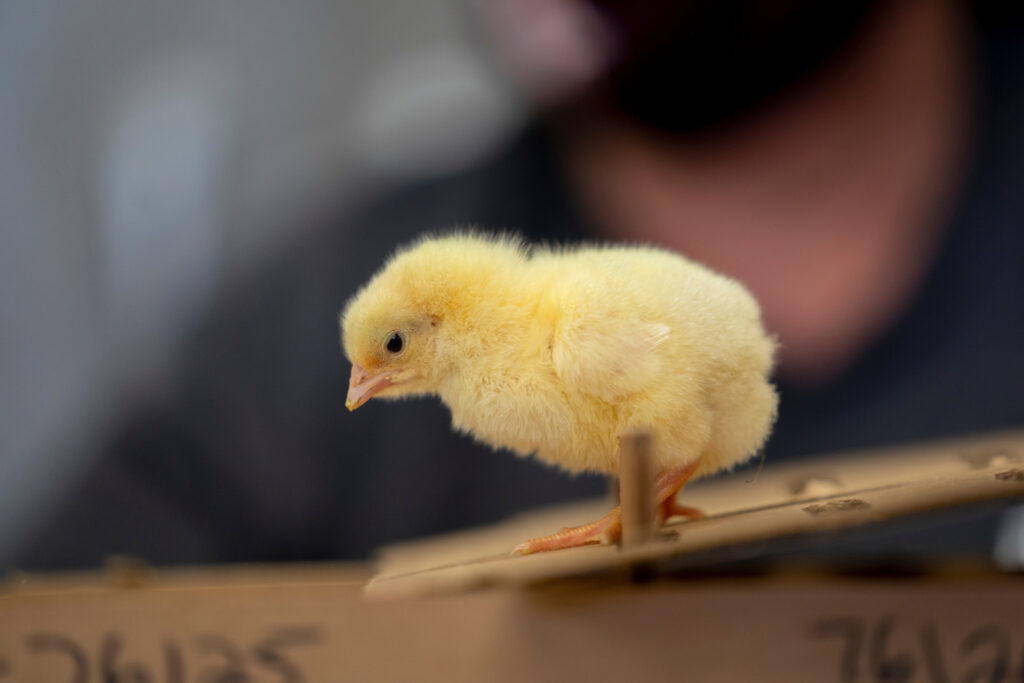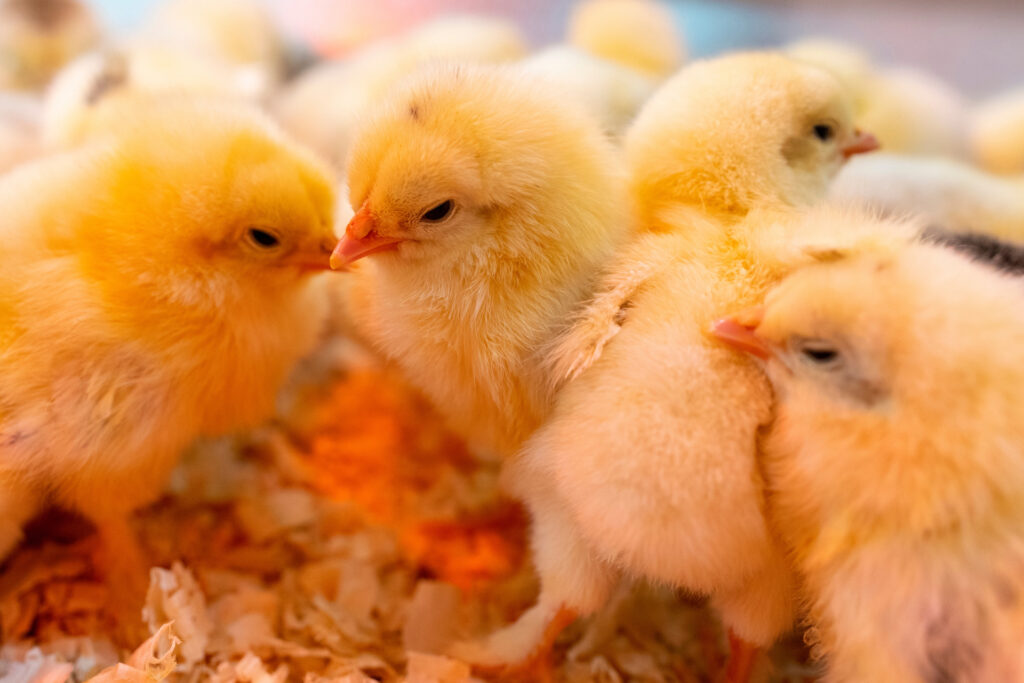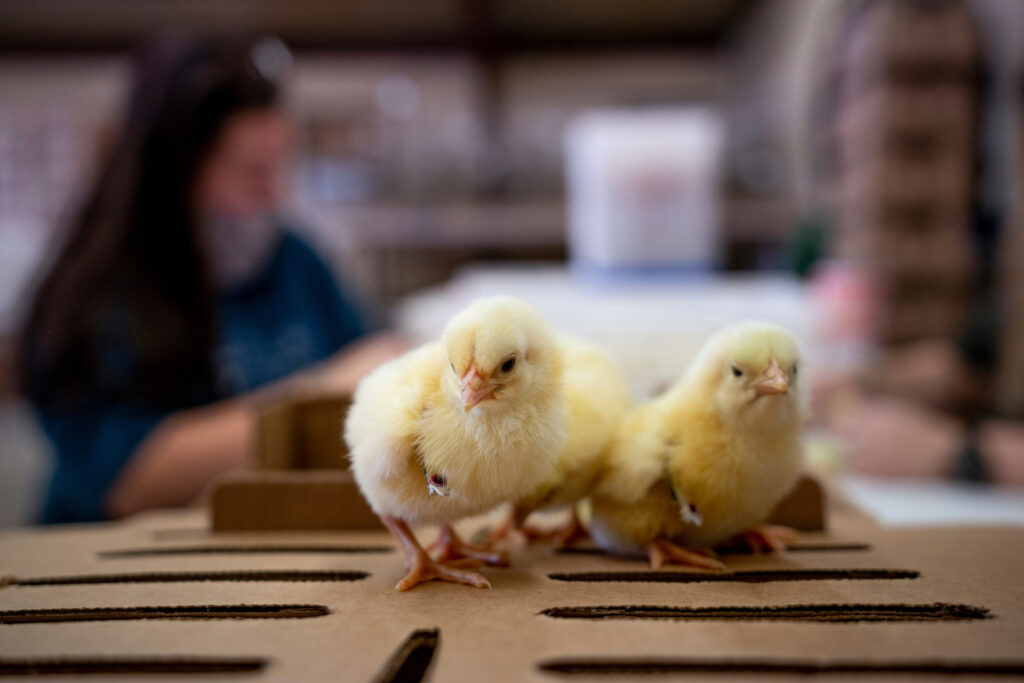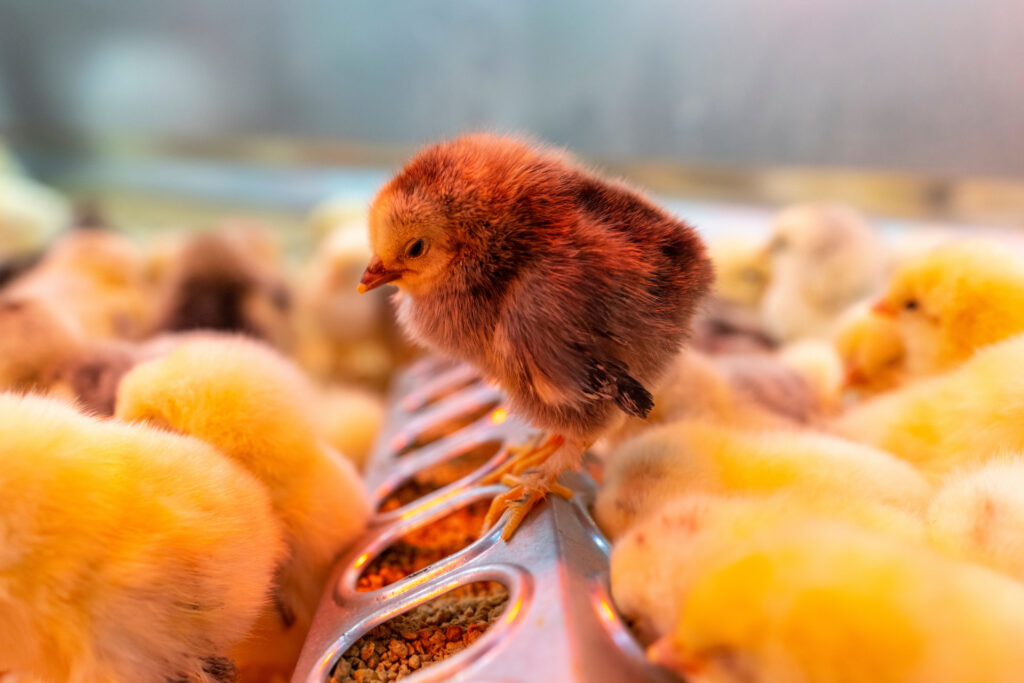Reasons not to hug, snuggle or kiss chicks and chickens
Texas A&M AgriLife expert shares risks of getting too cozy with poultry
Sometimes it hurts to dispel facts with science, but a Texas A&M AgriLife expert said even though there is a National Snuggle a Chicken Day, celebrated on Jan. 8, he hopes people don’t hug and kiss baby chicks and chickens without proper awareness and precautions.

While the idea of snuggling up to these fluffy feathered friends may warm your heart, it’s essential to consider the well-being of the chickens as well as those who handle them.
Greg Archer, Ph.D., Texas A&M AgriLife Extension Service poultry specialist and associate professor in the Texas A&M College of Agriculture and Life Sciences Department of Poultry Science shared four reasons to avoid petting poultry:
- Chickens may have salmonella and other bacteria on them.
- Chickens may have external parasites that can get on and affect humans.
- Chickens like to peck shiny things, possibly including eyes.
- Handling can cause stress and possibly injury to the chicken.
Bacteria on chickens
The presence of salmonella and other bacteria on chickens raises health concerns for humans, emphasizing the importance of proper hygiene and precautions when interacting with chicken and other poultry like ducks. According to a report by the Center for Disease Control and Prevention, CDC, an estimated 1.35 million infections and 26,500 hospitalizations are caused by Salmonella bacteria in the U.S. every year.
If you must handle a bird, it is important to be mindful of sanitary precautions you should take like washing hands with soap and warm water and changing clothes worn during handling. This can help reduce potential salmonella exposure or its spread into the home after handling, Archer said.
Mites, lice, ticks, fleas, even bed bugs and other external parasites can be found on poultry, including chickens, he said. Poultry flocks and coops should be protected from pest outbreaks, but these little biters are another reason to exercise caution and proper sanitation when handling chickens.
Archer suggested adults educate children about the risks and potential dangers associated with handling chickens, including avoiding a potentially harmful peck from a larger bird.



Stress on the birds
Something to also be mindful of is the potential stress holding and petting chickens may put on the animals.
“Stress can lead to reduced egg production and reduced immunity,” Archer said.
To avoid unwanted stress on the animals, being slow and calm with them is a great first step. Archer also recommends daily interactions with the animals so they become more accustomed to you and handling by you.
Birds are prey animals and can tend to hide their stress well. So, what are the signs that you may be causing stress? Archer said observing if a chicken is not eating, drinking or producing fewer eggs than normal are three major clues the animal is under stress. Another clue is if they are vocalizing more and/or differently than normal.
Archer said he understands many backyard poultry producers treat their flocks like family. While interacting with these animals should be fun, it also comes with the responsibility to protect the birds, yourself and your loved ones.
“I hate to be a buzzkill about the ‘snuggle a chicken day,’” Archer said. “I want people to treat their flocks like productive members of the family, but I also want them to be smart about handling them.”





